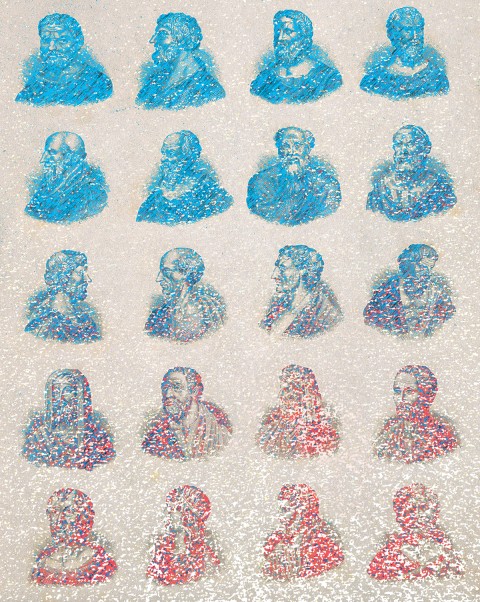The great man theory is poison for the church
The problem isn’t just that it exists. It’s that so many ministers fall for it.

(Century illustration)
There’s a lot we still don’t know about clergy burnout. People used to think of it as a product of time—even the best engine will break down after too many miles—but then the many examples of good, effective, older clergy helped to settle that ageist assumption. It has also been described in terms of damage: some traumatic event takes place, whether during one’s ministry or before, and it decreases the lifespan of that ministry. But while I don’t want to discount the impact of trauma, the corresponding implication—if nothing happens, I’ll be fine—is troubling. Because stuff happens all the time! Each of us lives with a lot of stuff, and I’d hate to think of caring for ourselves as simply maintenance to help us last longer. We’re humans, not Toyotas.
I think burnout—and the health of churches and ministers generally—is less about what has happened and more about the assumptions we bring to this holy work in the first place. And the more I talk to my millennial and Gen Z clergy colleagues, the more I’m certain that one particular assumption is going to be our ruin. It is called the great man theory, and while it has roots in Plato, it really comes from Thomas Carlyle. “The history of the world,” said the 19th-century Scottish philosopher and polymath, “is but the biography of great men.”
And so the theory goes: human innovation is essentially stagnant until truly special people come along and push us forward. Look at Plato, Newton, Napoleon, Shakespeare, proponents of this theory proclaim. The history of the world is told through a few special humans—the Founding Fathers and Albert Einsteins and Martin Luther Kings among us who broke through the ice of mediocrity. And the fact that our schools teach history like this (the story of America, for example, as one about the brilliance and resilience of a few individuals instead of colonial conquest and genocide) is one way we communicate to our children that this is what they should become: Great. Singled out. Special. Change makers. Then when most of them don’t—because this theory is trash—our culture says they didn’t make it and lifts up the ones who do ascend, forgetting the rest altogether.





